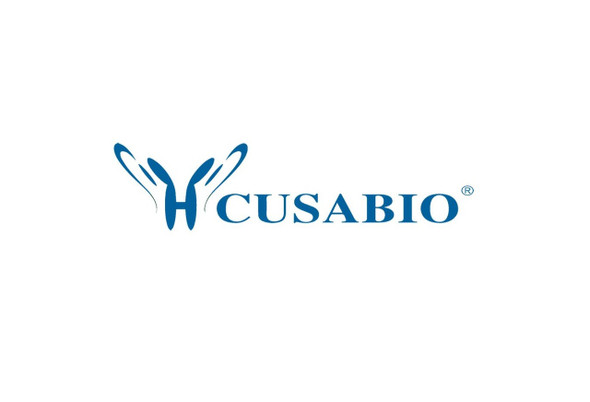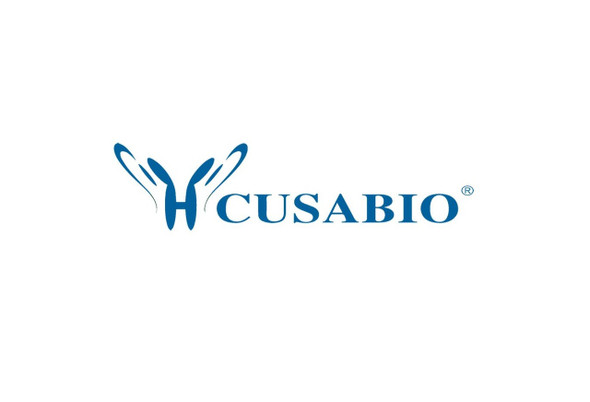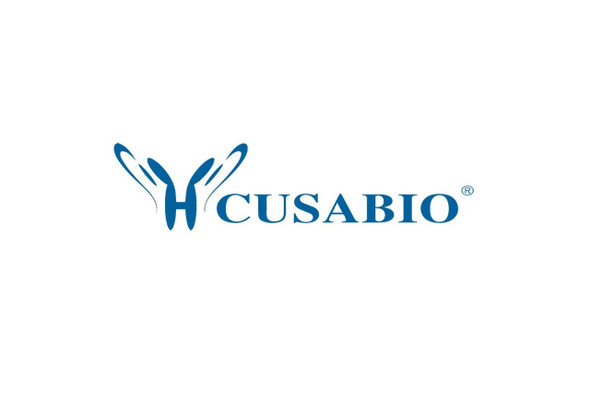Cusabio Mouse Recombinants
Recombinant Mouse Transcription factor MafK (Mafk) | CSB-EP713990MO
- SKU:
- CSB-EP713990MO
- Availability:
- 3 - 7 Working Days
Description
Recombinant Mouse Transcription factor MafK (Mafk) | CSB-EP713990MO | Cusabio
Alternative Name(s): Erythroid transcription factor NF-E2 p18 subunit
Gene Names: Mafk
Research Areas: Epigenetics and Nuclear Signaling
Organism: Mus musculus (Mouse)
AA Sequence: MTTNPKPNKALKVKKEAGENAPVLSDDELVSMSVRELNQHLRGLTKEEVTRLKQRRRTLKNRGYAASCRIKRVTQKEELERQRVELQQEVEKLARENSSMRLELDALRSKYEALQTFARTVARGPVTPTKVATTSVITIVKSAELSSTSVPFSAAS
Source: E.coli
Tag Info: N-terminal 10xHis-SUMO-tagged and C-terminal Myc-tagged
Expression Region: 1-156aa
Sequence Info: Full Length
MW: 37.5 kDa
Purity: Greater than 85% as determined by SDS-PAGE.
Relevance: Since they lack a putative transactivation domain, the small Mafs behave as transcriptional repressors when they dimerize among themselves. However, they seem to serve as transcriptional activators by dimerizing with other (usually larger) basic-zipper proteins and recruiting them to specific DNA-binding sites. Small Maf proteins heterodimerize with Fos and may act as competitive repressors of the NF-E2 transcription factor.
Reference: "The ubiquitous subunit of erythroid transcription factor NF-E2 is a small basic-leucine zipper protein related to the v-maf oncogene." Andrews N.C., Kotkow K.J., Ney P.A., Erdjument-Bromage H., Tempst P., Orkin S.H. Proc. Natl. Acad. Sci. U.S.A. 90:11488-11492(1993)
Storage: The shelf life is related to many factors, storage state, buffer ingredients, storage temperature and the stability of the protein itself. Generally, the shelf life of liquid form is 6 months at -20?/-80?. The shelf life of lyophilized form is 12 months at -20?/-80?.
Notes: Repeated freezing and thawing is not recommended. Store working aliquots at 4? for up to one week.
Function: Since they lack a putative transactivation domain, the small Mafs behave as transcriptional repressors when they dimerize among themselves. However, they seem to serve as transcriptional activators by dimerizing with other (usually larger) basic-zipper proteins, such as NFE2, NFE2L1/NRF1, NFE2L2/NRF2 and NFE2L3/NRF3, and recruiting them to specific DNA-binding sites. Small Maf proteins heterodimerize with Fos and may act as competitive repressors of the NF-E2 transcription factor.
Involvement in disease:
Subcellular Location: Nucleus
Protein Families: BZIP family, Maf subfamily
Tissue Specificity: Highly expressed in heart, skeletal muscle and placenta. Also expressed in erythroid cells.
Paythway:
Form: Liquid or Lyophilized powder
Buffer: If the delivery form is liquid, the default storage buffer is Tris/PBS-based buffer, 5%-50% glycerol. If the delivery form is lyophilized powder, the buffer before lyophilization is Tris/PBS-based buffer, 6% Trehalose, pH 8.0.
Reconstitution: We recommend that this vial be briefly centrifuged prior to opening to bring the contents to the bottom. Please reconstitute protein in deionized sterile water to a concentration of 0.1-1.0 mg/mL.We recommend to add 5-50% of glycerol (final concentration) and aliquot for long-term storage at -20?/-80?. Our default final concentration of glycerol is 50%. Customers could use it as reference.
Uniprot ID: Q61827
HGNC Database Link: N/A
UniGene Database Link: UniGene
KEGG Database Link: KEGG
STRING Database Link: STRING
OMIM Database Link: N/A









